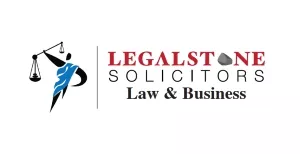- Register with the Registrar General's Department
The company must first be incorporated under the Companies Act, 2019 (Act 992) which governs the establishment of companies in Ghana. The company must be a private company limited by shares with one of the directors being ordinarily a resident of Ghana.
- Register with the Ghana Investment Promotion Centre
(GIPC)
Gaming companies wanting to set up in Ghana must register with the GIPC whereby they must meet a minimum capital either in cash or cash equivalent. Thus, for sports betting, the minimum foreign capital requirement is US$500,000.00. If a Ghanaian partner is involved, the foreign investor must invest at least US$200,000.00.
- Register with the Gaming Commission of Ghana
The Gaming Commission of Ghana is the regulator for gaming operators in Ghana. There are requirements to meet to obtain a gaming license from the Commission. First, the company must be a limited liability company. Second, the company must have an identifiable office, and third, the company must have a service mark or logo registered with the Registrar of Companies. It is worth noting that the company must above all things must have the required minimum stated capital either in cash or cash equivalent.
Other requirements necessary to obtain a license are;- Obtain a criminal clearance certificate for all company directors.
- Submit a tax clearance certificate.
- The company must be wholly or partly Ghanaian-owned.
- The company must pay a Licence fee to the Gaming Commission.
Other Mandatory Institutions
Aside registering with the above key institutions, there are other institutions gaming companies wanting to set up in Ghana must register with. They are;
- The Ghana Revenue Authority (GRA) – Registering with GRA is essential for the payment of taxes. Companies are issued with tax clearance certificates upon registration and payment of the initial tax assessment.
- Social Security and National Insurance Trust (SSNIT) - All incorporated entities to register and make a contribution for their employees towards their retirement.
- Data Protection Commission (DPC) – Gaming operators must register with DPC to have a license to collect personal data from individuals.
- Metropolitan, Municipal or District Assembly – All incorporated companies must pay and obtain permits from the District, Municipal or Metropolitan Assembly where the business operates.
Furthermore, all incorporated businesses that have met the minimum capital requirement and issued with a GIPC certificate can open a business account. The benefit that comes with it includes transfer of funds out of Ghana.
Also, incorporated companies are to fulfil their corporate responsibility to the government by paying taxes.
Gaming companies are required to pay Gross Gaming Revenue (GGR), Withholding taxes on punters winnings, among others.
Legal Notice
The contents of this publication, current at the date of publication set out above, are for reference purposes only. They do not constitute legal advice and should not be relied upon. Legal advice about your particular circumstances should always be sought separately before taking action based on this publication.
The content of this article is intended to provide a general guide to the subject matter. Specialist advice should be sought about your specific circumstances.


